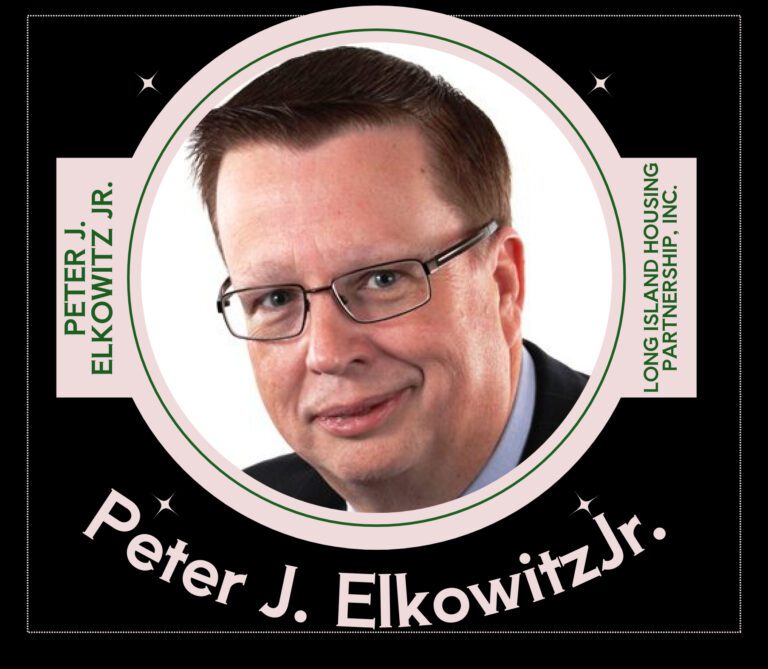
Peter Elkowitz is the president and chief executive officer of the Long Island Housing Partnership Inc. and its various affiliates, where he has been employed since 1989.
Since its founding in 1988, the mission of LIHP has been to provide affordable housing opportunities to those who, through the ordinary, unaided operation of the marketplace, would be unable to secure, or remain in, a decent and safe home.
LIHP accomplishes this mission through affordable housing development and rehabilitation, mortgage and default counseling, down payment assistance, employer-assisted housing, technical assistance, advocacy and other housing-related programs.
Mr. Elkowitz holds a master of science degree in policy analysis and public management. In June 2002, he completed the Senior Executives Program in State and Local Government at the John F. Kennedy School of Government at Harvard University.
He also received the Harry Weiner Distinguished Alumni Award in 1995 and the Governor’s award for Excellence in Housing in 1994. He is a member of the 2007 Class of The Energeia Partnership – The Academy for Regional Stewardship at Molloy College.
Currently, he serves on the advisory board of New York Housing Conference Inc., is a board member and treasurer of Grounded Solutions Network, and a board member of Empire Justice Center.
Mr. Elkowitz served as chair to the Federal Home Loan Bank of New York Affordable Housing Advisory Council and was a former member of the Long Island Regional Planning Council.
Over the 34 years that Mr. Elkowitz has been at LIHP, the need for affordable ownership and rental housing has significantly increased and the challenges associated with developing that housing continue.
The migration of our young workforce off Long Island, partially due to the lack of affordable housing, continues to worsen and stress our economy. The escalating home prices that we have seen through the pandemic have exacerbated the problem.
LIHP has had to evolve to keep up with the demand for services caused by these problems. We have had to diversify our programs.
As an example, when LIHP was founded, a $25,000 public subsidy was effective in making a new home affordable for our workforce. Now, public subsidies average approximately $200,000 to make a newly-constructed home affordable.
All of these subsidies include resale restrictions, but after the restrictions are satisfied, the homes were not necessarily required to remain as part of an affordable housing pool.
LIHP has created a land trust wherein the trust retains ownership of the land, and the homeowner owns the structure. The land trust model allows the homeowner to realize appreciation on the structure upon the sale, but as the land trust owns the land, the home remains affordable in perpetuity.
LIHP, like many others, was also forced to evolve its operations during the pandemic when we were forced to work remotely for well over a year. We had to improve our technology and train our staff in order to continue to assist those in need of affordable housing – a need that was exacerbated by the pandemic.
All of LIHP’s programs were in uninterrupted operation during this time, and we continued to close on homes in the land trust.
LIHP also supported various municipalities in the administration of federal assistance for rental housing and mortgage payments, which resulted in LIHP processing thousands of applications and millions of dollars in disbursements.
LIHP was nationally recognized for its efficient mobilization and administration of these programs.
This is a dynamic field, and the need for affordable housing continues to grow. It is a need that must be addressed to ensure that our economy and our workforce remain strong.






